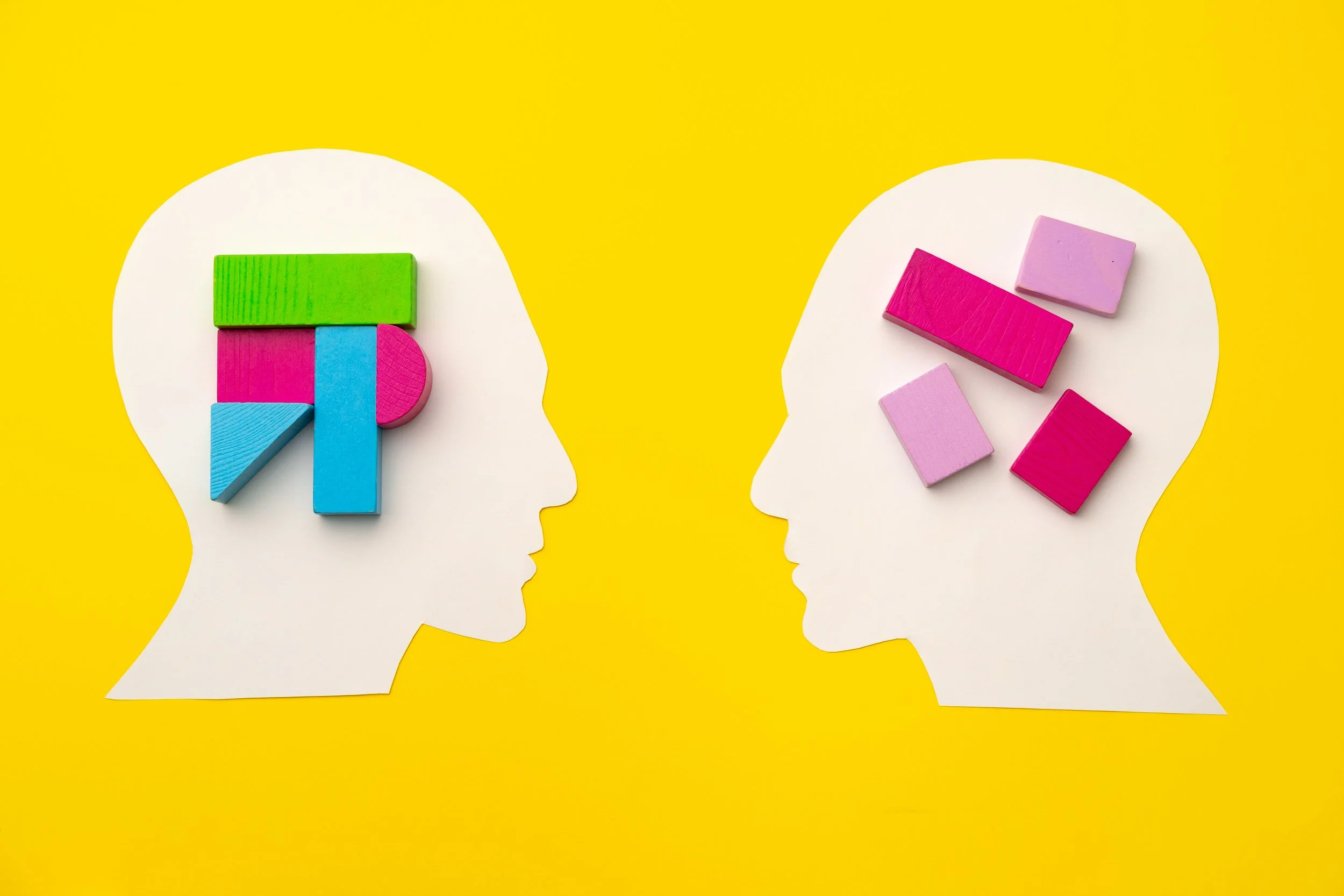When "Just Try Harder" Isn't the Answer: Executive Functioning Support for Late-Diagnosed ADHD Women
Hey there,
Let’s talk about something more and more women in their 30s and 40s are realizing: That feeling of constantly swimming upstream, working twice as hard just to keep up, setting endless reminders only to forget the one thing that actually mattered?
It’s not because you’re disorganized, lazy, or bad at adulting. It’s because your brain is wired differently.
The Late-Diagnosis Wake-Up Call
Maybe this sounds familiar. You’ve built a successful career, manage a household, and raise kids—yet you still feel like you’re barely holding it together. You've spent years creating elaborate systems, color-coding your calendar, and making checklists for your checklists… only to still miss deadlines and beat yourself up over it.
Then one day, maybe after your kid got diagnosed or after scrolling ADHD TikTok at 2 a.m., it clicks: Wait… this is me too.
Getting diagnosed with ADHD as an adult woman isn’t just an “aha” moment. It’s an identity earthquake. Suddenly, you’re looking back at your entire life through a new lens, seeing every struggle, every “why am I like this?” moment with clarity.
And if you’re balancing an executive role, motherhood, and a million other responsibilities? That clarity comes with a whole new level of complexity.
The Executive Function Gap No One Talks About
Here’s what most people don’t get about ADHD: It’s not just about focus. It’s about executive function—things like starting and finishing tasks, managing time realistically, regulating emotions under stress, remembering details, and prioritizing effectively.
If you’re a late-diagnosed woman, you’ve probably built some pretty incredible compensatory strategies. But at what cost? Chronic exhaustion, anxiety, imposter syndrome, and the constant feeling that you’re never doing enough.
The problem isn’t that you’re not trying hard enough. The problem is that you’re expected to function in systems that were never designed for your brain.
So… What Actually Works?
When I work with high-achieving ADHD women, it’s not about “fixing” your brain. It’s about working with it.
Here’s what actually makes a difference:
Understanding how your brain works so you can build systems designed for it, not against it.
Structuring your day around your brain’s natural focus rhythms instead of forcing yourself into a schedule that drains you.
Creating environments—both physical and digital—that reduce cognitive overload.
Using follow-through methods that actually work for the ADHD brain instead of relying on systems built for neurotypicals.
Letting go of guilt around not fitting into the “shoulds” that were never designed for you in the first place.
One client—a tech director and toddler mom—put it best: “I spent 42 years trying to force myself into systems that were never built for my brain. Executive function coaching didn’t just give me tools; it gave me permission to stop fighting myself.”
The Reality at Work and Home
Most workplaces and household management systems are designed for neurotypical executive function. And let’s be real—even they struggle with the level of overstimulation and expectations we’re dealing with today.
Meetings with no agenda that run 30 minutes over? That’s an executive function nightmare. Projects with no clear next steps? Recipe for decision paralysis. Household responsibilities that are assumed but never explicitly defined? Mental load overload.
This isn’t just about being “more organized.” It’s about shifting the way you approach work, leadership, and life with strategies that actually align with your brain.
ADHD Isn’t Just a Struggle—It’s a Strength
ADHD isn’t just a list of challenges to manage. It also comes with powerful advantages:
Innovative thinking and creative problem-solving
Hyperfocus that can produce exceptional results (when channeled correctly)
Deep empathy and intuitive leadership
Crisis management skills honed through years of last-minute magic
Cognitive flexibility from constantly adapting in a neurotypical world
The biggest transformation happens when you stop seeing ADHD as something to overcome—and start seeing it as a different way of thinking that brings both challenges and strengths.
Ready to Work With Your Brain Instead of Against It?
If you’re a late-diagnosed woman balancing leadership, motherhood, and life with ADHD, let’s talk about how executive function coaching can help.
This isn’t about another “productivity hack.” It’s about designing a personalized approach that works for your actual life, your actual brain, and your actual goals.
The answer isn’t to try harder with strategies that weren’t built for you. It’s to work differently—with ones that actually fit you.
Here’s to embracing your brain exactly as it is.
Dr.Zoe Rapoport

